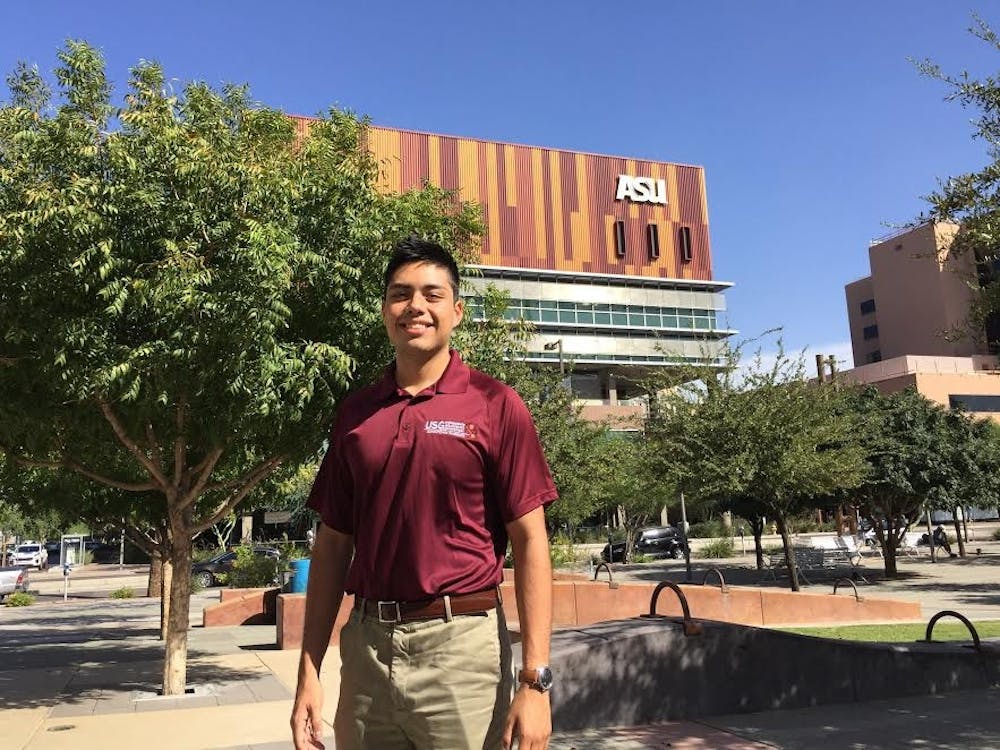After being elected Maricopa County Sheriff, Paul Penzone faces an arduous road of perception in uniting the Valley community.
Oscar Hernandez, a public policy junior, Undergraduate Student Government Downtown Senator and recipient of the Deferred Action for Childhood Arrivals, or DACA, said the current feeling of the immigrant communities in the Tempe and Phoenix areas is one of fear, with a distinct message being directed their way.
“They’re sending clear messages now that in the (President Donald) Trump era there’s a new environment and we will be targeted,” Hernandez said.
He said he pondered whether his merits were being given any value in this country or whether he was labeled as criminal due to his undocumented status.
"What people don’t understand is, what classifies someone as criminal?" he said. "Can I drive to go see family members without a license? Does that make me a criminal?”
During the election season, Hernandez said hope was rising as the immigrant community saw a new face — Penzone.
Penzone campaigned using a change of rhetoric from that of longtime Maricopa Sheriff and President Donald Trump surrogate Joe Arpaio.
“We understand its part of politics," Hernandez said. "We originally saw it as a new opportunity. I specifically remember him saying he’s not going to be doing the raids. He’s saying something we want and then clearly reverses."
In late February, the sheriff’s office indicated that federal immigration agents would not be taken out of the local jails, a critical place where immigrants legal status is often determined and the question of deportation is virtually decided.
“I know of several stories where basically, someone is arrested and (ICE agents) cut them off from the outside world where their resources are so that they feel hopeless," Hernandez said. "When Obama was in office there was communication about when things were happening. Right now, everything is so unexpected."
School of Transborder Studies professor Lisa Magana said the source of the problem lies within communication and politically charged rhetoric.
“Cities like to keep police and immigration activities separate … what that really means is [the people] don’t want to harbor criminals.” Magana said. “Under President Obama, the only priority for immigration removal or deportation was focused on if it was a matter of public safety. Under President Trump’s policy, for any type of crime, an immigrant can be subject to removal (or) deportation.”
Regarding those who have called immigrants a source of America’s troubles, Magana said that is not the case.
“Immigrants are less likely to commit crimes," Magana said. "There’s rhetoric right now that’s meant to be divisive and a lot of times immigration law is more symbolic than substantive.”
Magana’s words align with Hernandez's regarding communication of the community under the current versus former White House administrations, as well as with local law enforcement.
Despite the fear emanating from immigrants due to language from the White House, there are still legitimate signs of hope for cooperation between immigrants and local law enforcement, Hernandez said.
Penzone has created a community relations team with the goal of building a bond of trust between the Maricopa County Sheriff’s Office and immigrants in the Phoenix area, according to MCSO representatives.
Ron Gomez, MCSO's community relations director, said the team was aware of misperceptions within the community and the challenges they pose, but is optimistic about progress on the issue so far.
“We’re here to listen to voices and concerns of the community — to put a face to the voice,” Gomez said. “The sheriff has created a community relations department team of three liaisons to address concerns within the community. We’re building a team. Not just internally but externally. We’re adding members of the community to the team as well.”
In regard to policies under Arpaio, Gomez said the office is examining the difficulties from the prior administration and building from there.
James Collins, another MCSO community relations director, said the office has held three immigrant community town hall type meetings in the past month.
“We bring in about 100 to 150 members per meeting out of the East Phoenix region (to the community meetings),” Collins said.
Collins said MCSO is working to communicate that their focus is preserving public safety and opening dialogue.
“We have discretion, the ability to think for what’s best for the community, while still utilizing the law,” Collins said.
Reach the reporter at rkeys1@asu.edu or follow @raymond_keys on Twitter.
Like State Press on Facebook and follow @statepresss on Twitter.




